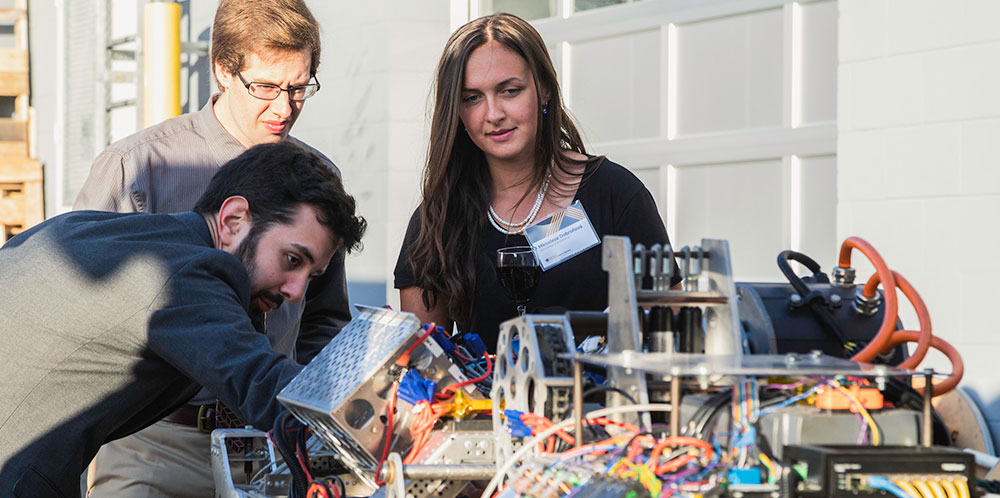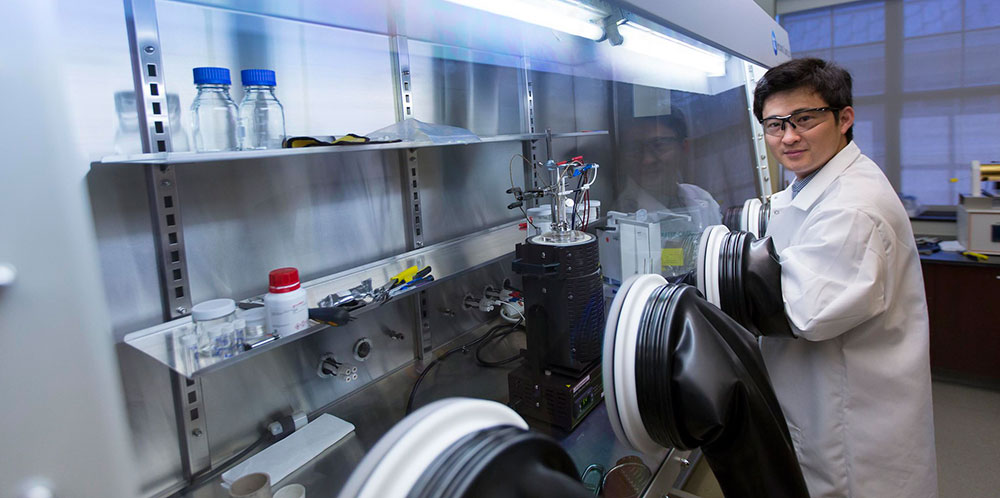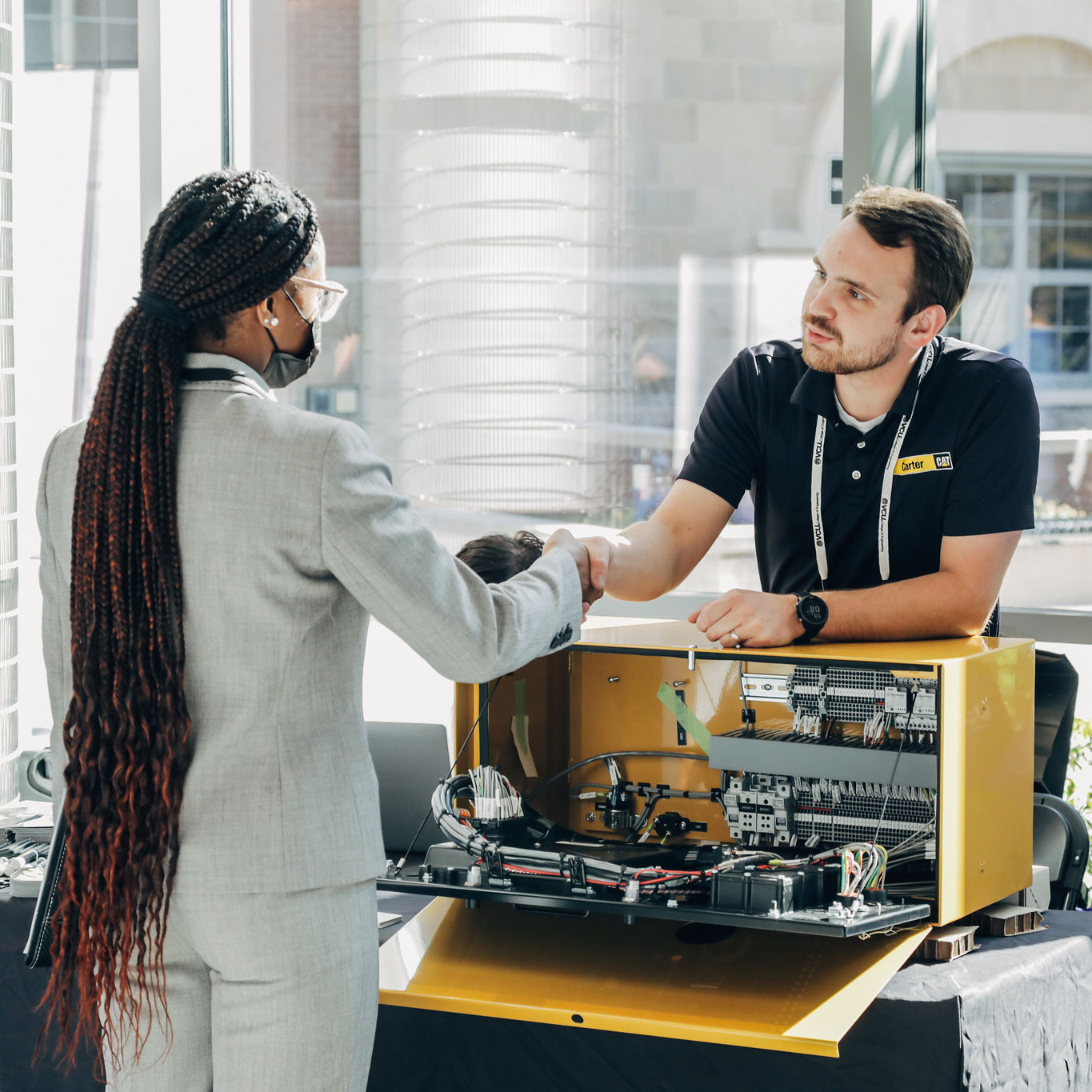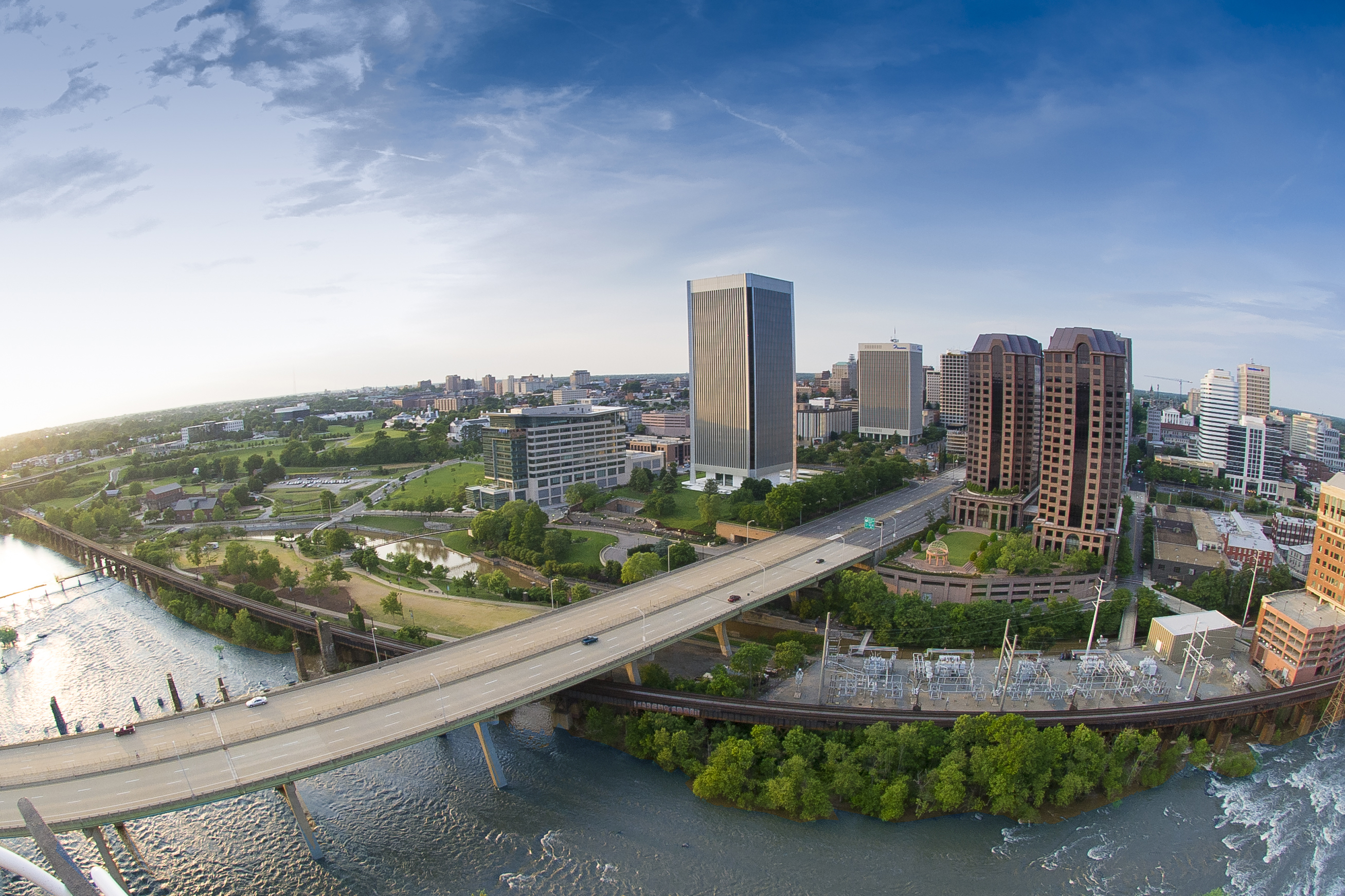Mechanical & Nuclear Engineering (MNE) at VCU
You will be career-ready with hands-on lab modules built into the mechanical and nuclear engineering curriculum. Apply valuable classroom teachings in lab and professional settings that culminates in a capstone design course. Develop skills in college you can use to solve real-world engineering challenges. Access to learning spaces equipped with industry-strength tools allow you to apply the theoretical knowledge from lectures in practical, real-world lab environments. These spaces include:
- MNE Practicum Lab: use 3D printers, assemble and program your autonomous robot.
- Radiation Detection and Measurement Lab: equipped with essential instruments for the detection and measurement of alpha, beta, gamma, and neutron radiation.
- Thermal Science Lab: work with pumps, heat exchangers and wind tunnels.
- Mechatronics Lab: combine sensors, actuators and control systems.
- Nuclear Reactor Simulator: experience a power plant control room.
- Maker Garage and Studio: provides a space for students to freely use state-of-the-art traditional equipment and advanced manufacturing capabilities with proper training.
Mechanical Engineering
One of the broadest engineering disciplines, mechanical engineering applies the principles of engineering, material science, physics and mathematics to design, analyze and manufacture mechanical systems such as vehicles, biomedical devices, consumer products, internal combustion engines and robotic systems — to name a few. Study areas include:
- Additive Manufacturing
- Computer-Aided Design
- Mechatronics


Nuclear Engineering
We offer nuclear engineering as a concentration focused on the study and application of the properties of atomic nuclei and their reactions in areas such as energy production, industrial quality control, medical diagnostics or cancer treatment. Explore important topics that include:
- Environmental sustainability
- Nuclear physics
- Power generation
- Radiation technology
- Advanced energy systems


Your first job won’t be your first job
Your journey at the College of Engineering moves you toward an engineering career. You will have many opportunities to work with employers before graduation, developing an understanding for the kind of work you enjoy and building a network of relationships for the foundation of your career. These opportunities include:
Cooperative Education (Co-op)
Take a semester away to work a full-time engineering job while maintaining student status. Get paid, learn valuable industry knowledge and grow your professional network.
Vertically Integrated Projects (VIP)
Get school credit while leading and contributing to large-scale, multi-year research.
Student Organizations
Find like-minded students with a passion for mechanical and nuclear engineering in organizations such as Ram Rocketry or Formula SAE.
Internships
Apply what you learn in the classroom in a professional setting to gain valuable practical experience.
Looking to the future
Mechanical and nuclear engineering students find success in a variety of industries and our graduates work at companies like:
- Lockheed Martin
- Dominion Energy
- Norfolk Naval Shipyard
- The Boeing Company
- M.C. Dean
- DuPont
- Huntington Ingalls Industries


Beyond the classroom
Centered in the heart of Richmond, Virginia (often referred to as RVA), college life at VCU is completely different from a more isolated, traditional campus experience. There’s so much to do, and RVA isn’t just any city. It’s got character. A state capital with an unlikely mix of qualities — historic, artsy, food-obsessed, Southern, diverse, laid-back — it has just the right dose of grittiness to give it an edge.
